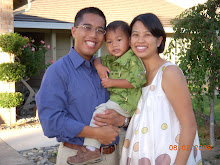Since that time he has been experiencing a myriad of symptoms to include a heightened increase in morale, anxiety, restlessness, euphoria, and an intense urge to do nothing. He is often seen with big smile on his face as soldiers walk by him and refer to him as, "Short Timer", not realizing that they are only exacerbating his symptoms further.
DISCUSSION: The Short Timer's Syndrome, or STS, was described and studied in the military especially during the first 2 World Wars. The STS has been well-documented in every military conflict since that time. Associated with longer tours of duty, the STS is described as a shift in morale, rise in anxiety, and a withdrawl from commitment to combat. In many cases, the soldier has lost so much combat effectiveness that they had to be moved to noncombatant positions as the end of their tour approached. The behavioral patterns noted among short timers in the military can be dramatic, such as this classic description from 1967,
"There is the period of anxious apprehension, a potentially severe syndrome of emotional distress beginning mildly two to three months before rotation,but usually occurring obviously in the last three weeks of the tour and most marked the last three days prior to rotation. Irritability seems to alternate with euphoria. Pacing is a common sign. Quiet hard working individuals who for eleven and three quarters months have put up with deprivations, long working hours, and continually increased demands will suddenly behave in a rather inappropriate manner.”


A Classic Case of Severe STS
References:
Stawicki, SP. Short timers syndrome among medical trainees: Beyond Burnout, OPUS 12 Scientist 2008;2(1):30-32.
References:
Stawicki, SP. Short timers syndrome among medical trainees: Beyond Burnout, OPUS 12 Scientist 2008;2(1):30-32.


3 comments:
can't hardly wait! ;*
Well done Short Timer! Time to update your countdown clock! God is good!
AWESOME!!
SO HAPPY FOR YOU & GEMMA!
Post a Comment